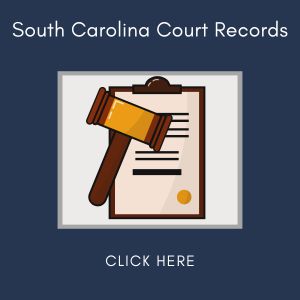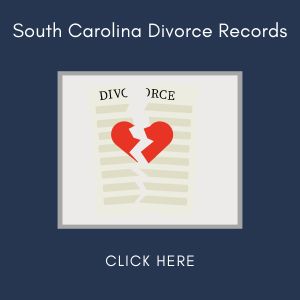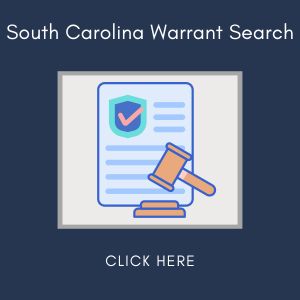Search Criminal, Court, Public, Police, Traffic Records, Person Info and More!
Search Billions of Public Records
Always Getting Updated… From Top Notch Databases.
Fast Access… Search Records From All Over The Nation.
South Carolina Public Records
Publicly accessible and non-confidential documents or information are termed public records in South Carolina. Government institutions in the state often hold these records, which typically include official documents, maps, recordings, films, photographs, and other media. As a group, these documents outline government actions or subjects validated by public entities within South Carolina.
The Freedom of Information Act (FOIA) was enacted to enhance transparency and accountability by ensuring public access to government records in South Carolina, thereby keeping citizens informed about governmental decisions. South Carolina develops this principle in accordance with its own laws, fine-tuning the breadth of access to fit local needs more effectively.
The foremost goal of providing public access to records in South Carolina is to improve transparency and accountability in governmental proceedings. The availability of these documents to the public bolsters the principle that government officials in South Carolina must conduct their duties ethically and within legal confines.
Frequently Accessed Types of South Carolina Official Records
Accessing Public Records Online: A South Carolina Guide
Greenville County
Richland County
Charleston County
Horry County
Spartanburg County
Lexington County
York County
Berkeley County
Anderson County
Beaufort County
When equipped with the right searching knowledge, accessing public records online in South Carolina becomes simple. Accessing a range of records is possible through various government sites in the state.
Many government agencies, from the local to the federal level, provide portals for accessing public records in South Carolina. Users can now avoid trips to government offices for research using digital accessibility.
Which Levels of South Carolina Government Hold Public Records?
Various government levels—federal, state, and local—house public records in South Carolina, each observing its own set of access laws and regulations.
Diverse agencies in South Carolina maintain individual rules on which documents are required to be made public and the process to access them.
Acquiring Public Records from Out-of-State
Anticipate a diverse legal terrain when seeking public records from different states. South Carolina governs following its distinctive form of the Freedom of Information Act (FOIA) or comparable law, shedding light on nuances from who qualifies to request to cost concerns and processing timeframes. It’s essential to be familiar with the specific public records laws in South Carolina, as these can affect everything from record access to the procedures for requests.
For instance, the availability of public information differs in accordance with the state. In some states, anyone is eligible to request records, while in others, this privilege is restricted to residents or those who meet certain criteria. To recover the records, you should find out the agency possessing them in South Carolina and deliver an exhaustive request promoting the search. Several regions promote this procedure using online tools and resources aimed at simplifying the procedure.
An Overview of the Freedom of Information Act (FOIA)
The Freedom of Information Act, established in 1966, provides the public the right to obtain records from any U.S. federal agency, essential for promoting transparency and enabling an informed public. If a FOIA request is made in South Carolina, agencies are obliged to expose all underlying details unless they clash with any of the nine discretionary exemptions aiming to preserve personal privacy, national security, and reverence for law enforcement.
Citizens have the right under the FOIA to request records from federal agencies operating in South Carolina. This process usually mandates that the requester explicitly list the records they need. Most institutions in South Carolina now receive written requests electronically. Requests can be submitted without a standard format, but being specific in your details aids in quicker record retrieval.
Challenges You May Face In South Carolina When Accessing Public Records
Getting access to public records can be a complex process in South Carolina, fundamentally due to the digital approach to record-keeping and differences in rules across jurisdictions. Addressing the discrepancies in access across different agencies and localities is a key challenge. Different jurisdictions in South Carolina may have their unique provisions regarding the understanding of public records and how one can access them. As a result, the variability of procedures and access can be quite broad, causing confusion and potential barriers for those seeking to access records from various regions.
Addressing the digital divide and technological barriers is a substantial challenge in South Carolina. Ready access to online records is largely dependent on the user’s technological know-how and capabilities. This predicament is made worse by the stringent security systems and complex databases that are not easy to navigate without specific know-how.
What to Know Before Making a South Carolina Public Record Request
It’s crucial to be well-prepared and fully understand the public record request process in South Carolina to ensure its efficiency and legal compliance. Consider these key points:
1. Review if the Information is Already Available Online: Check whether the information you need is already freely accessible before making a request. Access a wide range of published documents and data through the online resources of various government agencies in South Carolina. This plan can assist in saving your time and strength by avoiding unneeded solicitations.
2. Understand the Specific Demands: Each government group in South Carolina may have separate protocols when it comes to handling public record requests. Determine the right agency that keeps the records you’re interested in and familiarize yourself with their specific submission rules.
3. Be Comprehensive in Your Request: Precisely detail the records you want. Upholding specificity can help in clipping the processing time and escalating the likelihood of obtaining precise records. If you could, please propose the format in which you want to receive the information.
4. Ready Your Wallet: Be informed that there could be fees involved with your request, especially if substantial processing or physical copies are involved.
Finding State Public Records Without Cost In South Carolina
The expertise of where and how to peep facilitates the process of finding free public records in South Carolina. There is an extensive range of public records that can be freely accessed via various government and databases in the state.
Many local, state, and federal agencies host public records on their websites in South Carolina, often providing free access.









